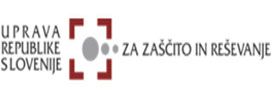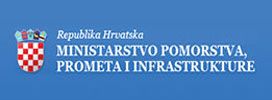-
Background
Europe is the world's largest market of crude oil imports, transported from and to Europe mainly by sea. However, the heavy traffic threatens some of the oil to be spilled into the sea, whether by accident or resulting from ship operations. Accidental oil spills are the main source of maritime pollution placing enormous demands on the national authorities in charge of response and clean–up operations. Although modern ship systems are highly sophisticated and reliable, marine incidents still happen quite often. According to EMSA (European Maritime Safety Agency) who analysed statistics of ships flying a flag of an EU Member State, key figures for the year 2014 report 3025 accidents out of which 99 very serious with 3399 ships involved; 1075 persons injured resulting in 125 investigation carried out. These are without reports of illegal discharge of oil and ballast waters detected and recorded by Satellite and noticed by other maritime subjects.
"Prestige" and "Erika" are examples of a terrifying environmental damage that can be caused by accidents of large oil spills. “UND Adriyatik” is an example of a maritime incident where the ship carrying dangerous material caught on fire causing fears of environmental damage close to the Croatian national park Brijuni (North Adriatic Sea). Nautical tourism brings in an increasing number of cruiser ships that pose threats to both people and environment (“Costa Concordia incident”).
Maritime traffic along Adriatic is heavily rising every year especially as to the number of mega cruisers and tankers (every year over 80 million tons of crude oil is transported through Adriatic), consequently posing a grave and real threat in terms of accidental marine and coastal pollution.
The Adriatic Sea is located in northwest - south-eastern position between Apennine and Balkan peninsulas, semi enclosed and 783 km long. The turquoise coloured Adriatic Sea is one of the cleanest and clearest seas on the planet and boasts a variety of treasures in its depths. Because of these characteristics, it is particularly difficult to ensure a uniform and effective level of maritime safety, security, prevention and response to pollution caused by ships, oil and gas installations, due to the lack of applicable SOPs carried out by the countries sharing its shores.
Often, clean-up efforts and recovery from an oil spill require costs and expertise which go beyond single national capacities.
For the Adriatic countries to be able to ensure safety of their seas, it is necessary to link and coordinate performance of all national stakeholders involved, both civil protection authorities usually in charge of on-shore response, and marine pollution authorities in charge of at-sea marine pollution response. Moreover, it is also necessary to establish a number of regional and bilateral cooperation agreements, and organize exercises, workshops and joint trainings to achieve the best possible level of preparedness. Accordingly, this project envisages the organization and implementation of a joint at-sea and on-shore oil spill pollution exercise, also involving on-board firefighting operations.
In that respect, the Union Civil Protection Mechanism could provide a platform for such actions in order to raise preparedness of potentially affected Adriatic countries in the coordination of their activities to protect people and the environment. The partner countries in this project are Croatia, Slovenia and Montenegro.
Most project partners have no large-scale real-life experience in oil pollution response and are at different levels of preparedness in terms of emergency response teams and equipment. Despite the high risk of maritime accidents and the establishment of individual Intervention Plans and SOPs, a joint action/exercise has never been organized or operational procedures tested, so the introduction of novelties and improvement of bilateral protocols of cooperation in CP are aimed to be achieved by this project.
The scenario revolves around a potential realistic scenario in Croatian waters. The Croatian MRCC receives emergency call information about a collision of a tanker/cruiser, anchored in Croatian coastal waters, and a ferryboat, due to inclement weather conditions and the ferryboat’s steering system malfunction. The tanker, which upon the collision caught fire, is carrying 20.000 tons of crude oil (option cruiser: several hundred passengers and crew members and 5000 tons of oil), while the ferryboat is carrying 80 passengers and crew members, and 25 vehicles. One of the ships sinks. The Republic of Croatia activates its operational forces to rescue the ferry passengers and the crew, and to extinguish the fire on the tanker. It is impossible to extinguish the fire on the tanker/cruiser and there is a real threat of oil spill.
Due to insufficiency of national firefighting capacities, the Republic of Croatia requests assistance through the ERCC of specialised teams for firefighting on vessels and clean-up of ecological pollution on the sea and the shoreline. ERCC mobilises buffer capacities to support oil recovery capacity and expertise from the participating states and EMSA with the stand-by oil spill response vessel MARISA N. ERCC also facilitates the deployment of these assets and of the Union Civil Protection Team.
-
Specification
- Project title - FULL SCALE CIVIL PROTECTION EXERCISE – ADRIATIC 2018
- Project acronym - ADRIATIC 2018
- Implementation - CROATIA, SLOVENIA AND MONTENEGRO.
- Duration – 18months ( 01/01/2017 till 30/06/2018)
- Consortium
- DRŽAVNA UPRAVA ZA ZAŠTITU I SPAŠAVANJE (DUZS) - Coordinator
- ADMINISTRATION OF THE REPUBLIC OF SLOVENIA FOR CIVIL PROTECTION AND DISASTER RELIEF (ACPDR) – Associated Beneficiary 1
- MINISTRY OF THE INTERIOR, DIRECTORATE FOR EMERGENCY MANAGEMENT OF MONTENEGRO (MUP DVS) – Associated Beneficiary 2
- MINISTRY OF MARITIME AFFAIRS, TRANSPORT AND INFRASTRUCTURE (MPPI) – Associated Beneficiary 3
- Total project eligible cost - 718.174 EUR
- EC financial contribution requested - 610.448 EUR ( = 85 % of total eligible costs)
-
Objectives
The main project objective is to improve civil protection preparedness and response capabilities in dealing with marine incidents that require joint at-sea and shoreline pollution response coordination facilitated via Union Civil Protection Mechanism. This aim will be achieved through the organization of a real-life exercise that will provide the opportunity to share capacities and resources between different national authorities (civil protection and marine pollution authorities), train operational procedures of the Mechanism and improve the cooperation of the Participating States. It will be a large testing platform that will aim to involve all the resources available at local, national, regional and international level, identifying possible gaps, areas of concern as well as most efficient solutions.
The exercise will test the following:
- National planning documents,
- Understanding of the UCP Mechanism in order to implement HNS Guidelines,
- Operational procedures and coordination between Intervention teams,
- Specialized firefighting and diving equipment,
- At-sea and on-shore clean-up,
- Lessons learned by the operational forces of Partner countries.
The International Exercise Adriatic 2018 also aims to implement the accepted standards of International Maritime Organization - IMO Resolution, paying special attention to the ecological component in the Adriatic Sea protection which must always be observed.
-
Actions and means involved
- Workshop on firefighting on-board large vessels and underwater activities,
- Workshop on response to at-sea and shoreline pollution,
- Table Top Exercise,
- Command Post Exercise,
- Full Scale Exercise,
- Exercise Evaluation (Training of evaluators, Hot Wash-Up,…).
-
Expected results
- Bilateral Cooperation Protocols in the field of Civil Protection are improved,
- At-sea and shoreline pollution response coordination is enhanced,
- Cross-border procedures are tested and trained,
- All partners are aware of other partners’ response capacities and capabilities for a better response planning,
- Knowledge and skills between intervention teams are exchanged,
- Exercise participants are made familiar with the Union Civil Protection Mechanism.



